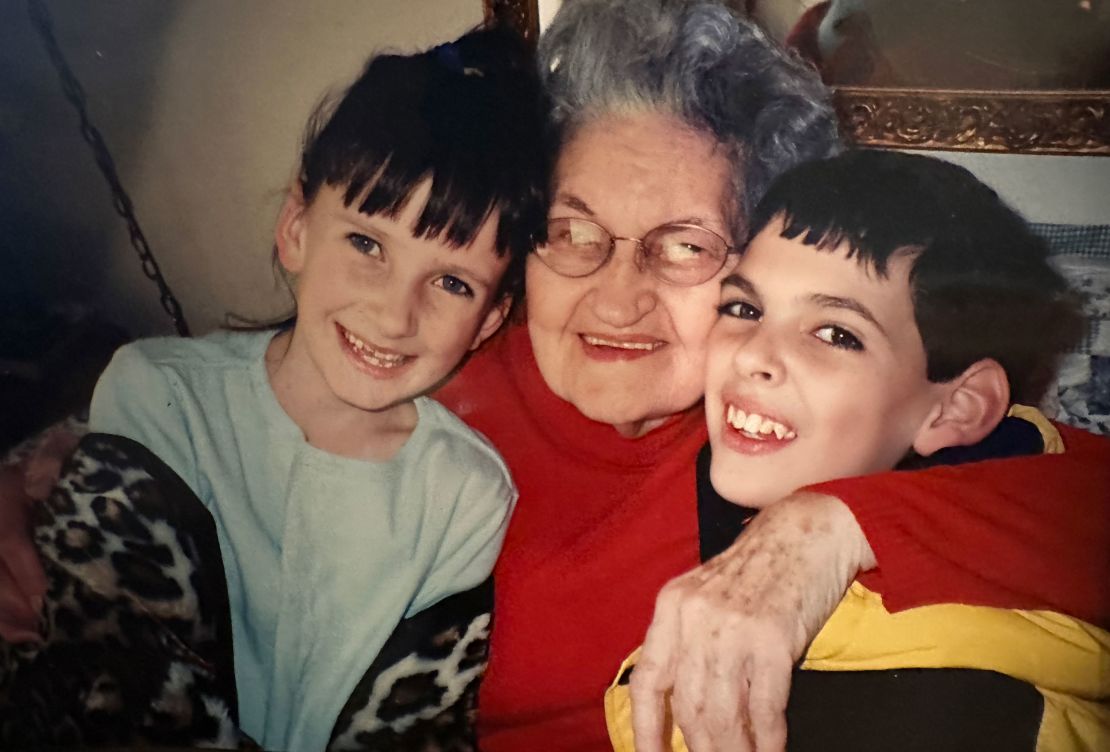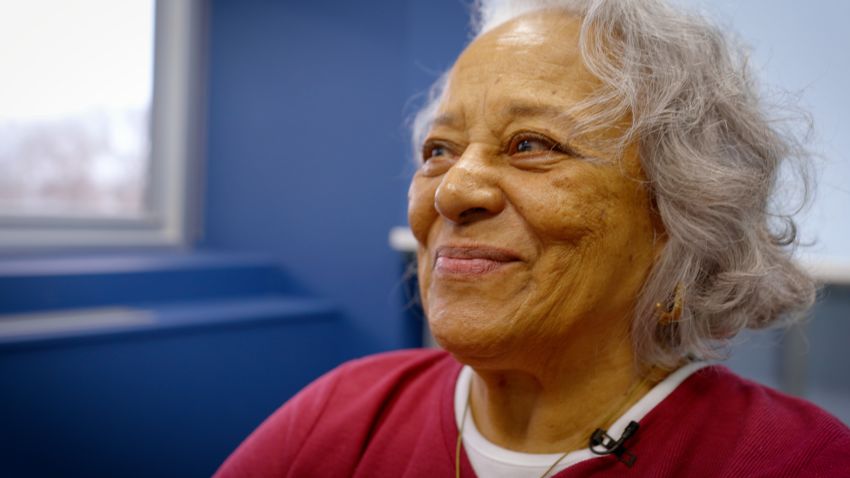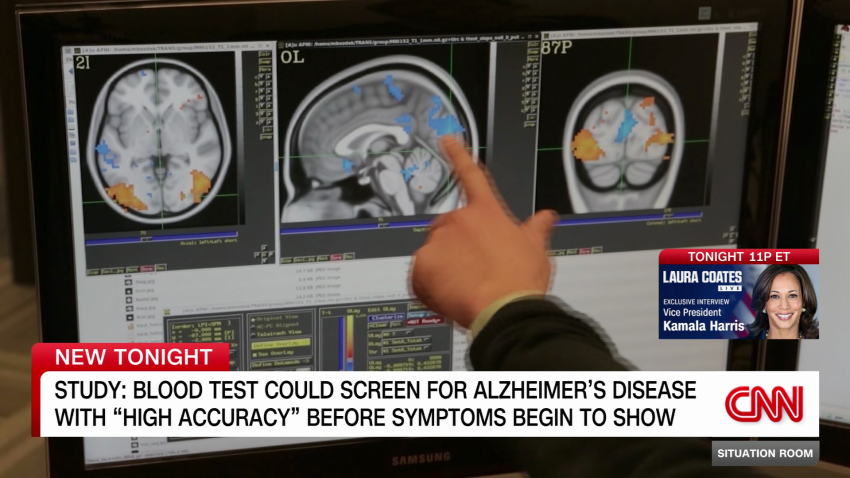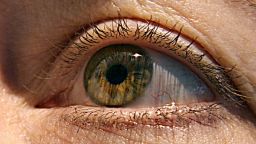When my mother was in her 80s, her daily call to her older brother always started with the same question: “Did your bowels move today?” I used to roll my eyes and pray to the old-age gods that I would never do the same.
Some days the conversation would include other body functions: “How did you sleep? Is the rain affecting your arthritis? How’s that heart murmur?” But the question I never heard either of them ask was, “How is your memory today?”

“It’s just the most ironic thing that people run for their heart health or worry about their bowels when the organ that worries is our brain,” said vascular neurologist Dr. Natalia Rost, associate director of the Comprehensive Stroke Center at Massachusetts General Hospital and professor at Harvard Medical School in Boston.
“Shouldn’t we be worried about the major organ in our body, the command and control center of everything that is human within us? There is no us without our brains,” said Rost, president-elect of the American Academy of Neurology (AAN).
Get ready to focus on your brain, because according to the AAN, the era of preventive neurology has arrived. In fact, the academy is hoping that all Americans will be on the healthy brain train by 2050.
“It’s a brain health revolution,” Rost said. “We want to help the public understand that a lifetime of health begins with brain health.”
The academy’s vision is that one day within the next 25 years, you, your children and your grandchildren will visit the doctor for yearly “well-brain” checkups that are covered by insurance as preventive care. In fact, that first visit may occur before a child is even conceived.

“We want major insurance payers to cover a well-brain visit as early as when Mom is considering pregnancy or is pregnant,” Rost said. “Then when baby is born, we bring in pediatric neonatologists, and then we follow the child into adolescence using all we are learning about the optimization of brain function.”
Interventions might include encouraging moms-to-be to breastfeed as long as possible, limiting a child’s exposure to screens and improving sleep habits that can carry on into adulthood, among many others.
As a person ages, each well-brain exam would focus on early prevention of disease known to damage the brain, such as diabetes, obesity, heart disease and more. Those visits would continue “into end-of-life stages, because even as we age or acquire a cognitive disease, we can still optimize brain health while living with brain disorders,” Rost said.
What might you experience during a brain checkup in the future? To find out, let’s take a deep dive inside one state-of-the-art brain examination that exists today.

Studying the aging brain
It was a beautiful balmy morning in Florida, and I felt my spirts lift, pushing my apprehension aside. I was on my way to the Boca Raton office of preventive neurologist Dr. Richard Isaacson, who in 2013 opened one of the first Alzheimer’s prevention clinics in the United States at Weill Cornell Medicine and New York-Presbyterian in New York City.
At his new program, the Institute for Neurodegenerative Diseases of Florida, I was to be participant No. 20 in a novel clinical trial focused on nurturing the aging brain. The study would determine my genetic, behavioral and lifestyle risks for cognitive decline, provide me with a personalized list of areas for improvement, and track my progress via new, experimental blood tests.
These unique blood tests could determine levels of amyloid, tau and other hallmark biomarkers for Alzheimer’s disease and other degenerative conditions. Deposits of amyloid can begin accumulating in the brain decades before symptoms begin, even in a person’s 30s and 40s.
“Over 46 million Americans are currently estimated to have pre-symptomatic Alzheimer’s disease, where pathologic hallmarks of the disease can be detected in the blood and brain before cognitive decline has begun,” Isaacson said.
To participate in the new study, I needed to undergo a battery of physical and cognitive tests to establish my brain’s baseline and areas of highest risk.
First, blood was drawn and sent to a lab in Boston to determine my levels of good and bad cholesterol, inflammation, insulin resistance and nutrition, all of which could put me on the road to cardiovascular disease and stroke, both major players in poor brain health.
“Vascular risk factors such as high blood pressure, high cholesterol, high blood sugar or diabetes may not be the cause of Alzheimer’s disease, but it can fast-forward Alzheimer’s pathology,” Isaacson told me. “I would prefer to slam on the brakes rather than rev the engine on the path to cognitive decline.”
Another key question: Did I have one or more copies of the APOE4 gene? People who inherit one or more copies of this gene variant are at greater risk of Alzheimer’s, although many never develop the disease.
Next, a bone and body scan determined my risk for bone thinning or osteoporosis, which has been linked to cognitive impairment as well as fractures and falls that can derail the ability to stay active, exercise, perform daily tasks or practice self-care.
The scan would also provide critical information about my muscle mass and percentage and distribution of body fat, which can be especially harmful to the brain when it accumulates around the waistline. “As the belly size gets larger, the memory center in the brain gets smaller,” Isaacson has told me.
A thorough examination of my eyes not only determined if I had vision problems that might impact my cognition, but also provided a look at the back of my eye, or the retina. Tiny blood vessels there can show early signs of nerve damage due to diabetes, high blood pressure, coronary artery disease and even cancer.
A cognitive baseline
I dreaded the cognitive tests I knew were necessary to establish a baseline of my brain. How many of the 15 words I heard could I immediately recall? I closed my eyes and tried to paint a picture in my brain as the voice repeated one after another: “Tree, rabbit, book, apple, lake …” (OK, the rabbit sat in a tree, reading a book while eating an apple with the lake behind. Whew, that was easier than I thought it would be.)
“Ladder, farmer, pipe, couch, airplane, stocking, child, mockingbird ….” (Uh, um, now there’s a ladder leaning against the tree, and a farmer is climbing it with a pipe in his mouth, with an airplane flying by — but wait, I forgot one! OK, there’s a mockingbird in the tree now, but what were the others?)
And so it went. Could I remember the faces and names of various people I saw on a computer after being introduced to 10 others? (Oh, gosh, I’m terrible at remembering people’s names.) Could I recall and draw a complex geometric figure, and then another even more complex? (Please no, my spatial abilities are the worst.) I cringed when each test was over, convinced my cognitive score would quickly prove my brain was headed for the trash heap.
Soothing voices from the interdisciplinary testing team tried to ease my fears. “Oh, no, you did well!” (Yeah, right, said my inner critic.) “No, really, you remembered a lot of those names!”

History is important
A medical history was paramount. Did I have a family history of Alzheimer’s? (No, not to my knowledge, but my mother had vascular dementia.) What about diabetes, cancer, thyroid disease, high blood pressure or heart disease? (My half-brother had two open heart surgeries and my aunt died from a stroke.)
Have I had any falls, concussions or traumatic brain injuries, called TBIs? That’s important because even a mild traumatic brain injury from a fall, car wreck, or playing sports can have a long lasting impact on the brain.
How many years of education from kindergarten onward did I have? Education and learning can develop “cognitive reserve,” thought to offset damage to the brain. Have I had any hearing loss? Like vision, poor hearing can impact brain health. (I wouldn’t be surprised — those concerts I attended in college were LOUD.) What were my physical exercise and dietary patterns? (Unfortunately, not as stellar as I would like.)
Questions about my dental hygiene were next on the checklist. Did I get regular checkups and cleanings (yes) and did I floss regularly? (No comment.) Not only is there a link between tooth decay and the heart and premature death, but studies have linked gum disease to cognitive decline as well.
How many hours of uninterrupted sleep did I get? Poor sleep is a well-known contributor to brain decay. Adults need to get seven to eight hours of quality sleep each night to give the brain time to regenerate and “take out the trash” of dead and dying cells.
Some of the questions might seem unexpected to those who don’t write about brain health. When did I start my period? How many pregnancies did I have? Did I have an early hysterectomy? Studies are finding strong links between the amount of estrogen throughout a woman’s life, the number of children she birthed and her risk for cognitive issues and health concerns.
Was I going through menopause, and if so, did I have hot flashes? Hot flashes have been linked to a greater risk of heart disease and cognitive decline, while the loss of estrogen during the menopause transition is a major risk factor for dementia and Alzheimer’s disease.
“Women have very different and unique risk factors than men for dementia,” Isaacson said. “Women have a 39% higher risk of dementia if they have fat accumulating around their midsection. And the rapid decline in estrogen during the perimenopause transition can actually be one of the most impactful risk factors for developing Alzheimer’s pathology in the brain.”
And then there was my emotional health. Was I neglected as a child, did I lose a parent or loved one or suffer mental or sexual abuse? Such adverse childhood experiences, known as ACEs, have been shown to hinder healthy brain development in children and contribute to multiple health problems throughout the lifespan.
Even as adults, depression, anxiety and other mental illnesses can impact the brain’s ability to function, while emotional trauma, such as domestic violence, rape, loss of a child, spouse or job can also flood the brain with caustic stress hormones that take a toll over time.
I am lucky
As it turns out, I am blessed to have no known genetic risk factors for Alzheimer’s and currently have precious little amyloid and tau in my brain. My cognitive reserve from years of producing videos and writing stories about nearly everything seems to be balancing the typical age-related shrinking of my brain.
However, my risk of developing vascular dementia, the second most common type after Alzheimer’s disease, is elevated. Not only do I have a family history, but some of my cholesterol and blood inflammatory markers were borderline or worse, leaving me open to small blood vessel disease.
My blood pressure has risen in recent years, a common occurrence with age, which was not helped by my couch-potato behavior during the pandemic. Instead of getting up and moving as so many smart people did, I opted to sit and work even longer hours. It was a bad choice with serious consequences — the bone scan showed my muscle mass has dwindled to a pitiful number.
Muscle makes it easier to exercise and build strength, while frailty contributes to falls and injury. I have taken a couple of tumbles in recent years. Muscle mass also boosts calorie burn, so losing it can contribute to weight gain. Add to that the typical age-related slowdown of one’s metabolism, and it’s not a surprise that I’ve also put on some pounds.
I lost two husbands, one to a rip current and another to a brain tumor, so I was no stranger to chronically high levels of cortisol and other stress hormones. Those can disrupt nearly all the body’s processes and lead to anxiety, depression, sleep problems, weight gain, issues with memory and focus as well as “heart disease, heart attack, high blood pressure and stroke,” according to the Mayo Clinic.
Again, I am lucky, in that I am a strong, resilient woman — as many of us are. Thankfully, the ability to take life’s challenges in stride and still prosper is something science says all of us can learn – and teach our children. In addition, many of my medical concerns can be addressed with a focus on healthy behaviors such as stress reduction, strength training and aerobic exercise, and a recommitment to a healthy plant-based diet — behaviors which Isaacson and his colleagues outlined in a recent review published in Nature.
I went home with a list of evidence-based action items created from research his team has conducted over the last 15 years. He calls it precision medicine – a risk management approach personalized to my specific needs.
“The goal is that by following a plan specially tailored to each person, brain decay could be prevented, just as a heart attack can be prevented by keeping your cholesterol and high blood pressure in check,” Isaacson said.
“Just imagine what we could accomplish if we started this process at birth.”

Joining a study
Until well-brain visits become a standard part of preventive care, undergoing such an in-depth brain analysis may well be restricted to people participating in clinical trials — as I am — and those with money and high-quality health insurance.
Volunteers are desperately needed for Alzheimer’s and other brain health research. The Alzheimer’s Association is looking for individuals living with Alzheimer’s, their caregivers and those without cognitive decline to volunteer for clinical trials. The National Institute on Aging currently supports nearly 500 active clinical trials on Alzheimer’s disease and related dementias. For information, go here.
Using technology may be one way to democratize access, Isaacson said. He is a coinvestigator on a recently launched National Institutes of Health-funded clinical trial designed to see if preventive brain care can be delivered to people in their homes. People with a family history of Alzheimer’s who meet certain criteria can sign up for the study at Retain Your Brain.
“The study allows the public to access software that walks them through a free risk assessment, memory and cognitive tests, and personalized advice from the comfort of their cell phones,” Isaacson said. “These types of digital brain health resources could potentially be used until the field of preventive neurology develops more broadly.”
As for me, I have a lot of work to do, but at least I know where I stand and what I can do about it. The rest is up to me. Wish me luck!
Editor’s Note: CNN writer Sandee LaMotte has been covering health and wellness, including what’s best for the brain, for more than 30 years. After learning she was now old enough to be eligible for a clinical trial for the brain, she jumped at the chance to enroll and later share this rarely reported process with readers.










